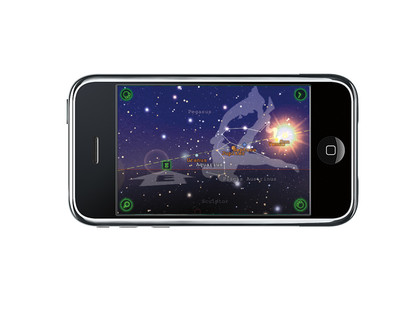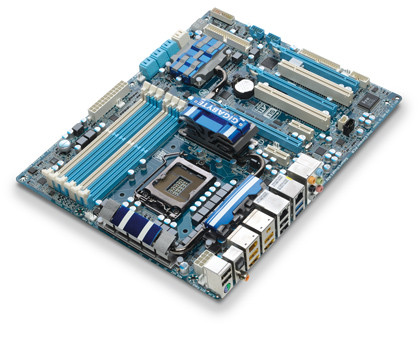10 new technologies that will revolutionise your life
The tech advances set to make a real difference
6. OLED displays
Yeah, we hear you. Another year, another promise that OLED screens are going to take over. Haven't we heard it all before? Except this time it could be true.
Google's Nexus phone has just launched with an OLED screen, and by all accounts it makes the handset almost – say it in hushed tones – more desirable than the iPhone. Brighter colours, sharper resolutions, darker blacks, whiter whites; why is this OLED technology so superior?
Put simply, it's because instead of filtering the light from a white or blue lamp behind the screen, each pixel in an OLED panel produces its own light. You don't have to be an optometrist to see why this is better, but it is much more expensive to produce.
Still, it also means OLED screens are much thinner than backlit ones, for obvious reasons, and while you may not be using an OLED PC monitor by the end of the year there are a lot more laptops with the technology arriving.
7. Superfast broadband
There are two things about broadband you should be concerned about. The first is whether or not the Digital Britain report, with its three strikes policy, outrageous invasion of privacy and extra charging for bandwidth, makes it into law before the general election final hits.
Sign up for breaking news, reviews, opinion, top tech deals, and more.
The second is what's going on at your exchange. By early next year, 75 per cent of us should be living in proximity to a telephone exchange that has a fibre optic connection to the internet. It's all part of BT's 21CN project to replace the entire copper telephone and broadband internet infrastructure with a single ethernet-based network fit for the 21st century.
So far, it's been dogged by delays and problems, but it's finally picking up the pace and is being tested by ISPs all over the country. The idea is that it will increase competition for high-speed broadband and bring down access prices, as well as bring services like IPTV – of the sort Virgin customers enjoy – to everyone.
It doesn't just mean better access to large downloadable game files and lower ping times, however. Our biggest hope is that it will eventually encourage telephone companies to do away with the irritating £12 a month line rental charge for a phone we don't actually use.
8. Augmented reality
Actually, we're kidding ourselves with this one. Augmented reality: the ability to overlay information on a live video feed of the world, is very cool, and it's impossible not to love iPhone apps like Yelp that pull in details and distances to the nearest pub or restaurants as you point the camera in their general direction.
Holding your phone three inches in front of your face as you're walking around feels a little too ridiculous to catch on, though. Perhaps it's like handsfree and Bluetooth headsets. Not so long ago people still sniggered if they saw someone using a phone without holding it to their ear, and not so long before that mobile phones themselves were devices for sales dorks.

In a couple of years time, it may seem the most natural thing in the world to see someone walking around with a phone held at arms length, directing them to food or drink with their own personal dynamic GPS system, or pulling up interesting information about the buildings and people in front of them. Yes, that's right, people.
Twitter 360 is an iPhone app that directs you to geotagged tweeters on your friends list, while TAT (www.tat.se) is working on an Augmented ID program, so if people point a camera at you various bits of information from your social feeds floating around your head. Makes stalking a lot easier then. Scary.
9. Natural user interface
In his CES keynote presentation, Steve Ballmer made several references to the 'Natural User Interface' (NUI), which is a handy catch all to describe all the Wii wand-waving, multitouch point and Project Natal-style aerobics that are catching headlines out there.
The keyboard and mouse is by no means dead, but the sudden flood of cheap laptops and all-in-ones with a built-in, multitouch screen suggests that it won't be long before we'll all have something a little bit different on our desktops.
Over in the US, for example, custom laptop maker IBuyPower has already started selling high-end gaming notebooks with a multitouch screen, and French developer, Eugen Systems has incorporated Win7's multitouch controls into the heart of its forthcoming strategy title R.U.S.E. It's all very exciting, except for one thing.
Multitouch may be native to Win7 and no other operating system, but the implementation is nowhere near as smooth as it is on, say, the iPhone. PCFormat has yet to use a multitouch application on a PC that doesn't suffer from a bit of inaccuracy or sluggishness, and the key to the NUI is in the first word. It has to feel natural, unforced and invisible to the end user. That's what using multitouch on an iPhone is like, and that's what Windows must achieve. If the mouse remains faster and more trusted, that's what people will use.
There are some brilliant ideas out there, though. Project Natal, Microsoft's full body 3D gesture recognition system for Xbox 360, is by far the most ambitious prototype, and we can't wait for a PC hack.
At CES the prototype Light Touch projector, from Light Blue Optics (lightblueoptics.com), was a show stealer. Using a technique called holographic laser projection, this tiny projector turns any 10inch surface – flat or curved - into a sharp multitouch screen.
10. Long-term evolution
The idea of getting high speed, super-reliable mobile broadband from a cell tower to your laptop or phone via WiMAX is not quite dead in the water, but it's certainly in need of a bit of mouth to mouth.
Far from being the 'Next Big Thing' as it was touted a few years back, it's had a painful and traumatic incubation period, which has seen some US carriers begin to adopt it and, in fact, quite a few businesses use it for point to point communications, but public access has dwindled from trial areas to almost nothing.
Partly, this may be because the company which owns the licence to operate WiMAX licences in several cities, Freedom4, was recently bought out and the new owners aren't in any rush to monetise the technology. More likely, it's because the mobile phone companies are happy with the current HSPDA speeds and are betting on an alternative technology, which is known as 4G, or Long Term Evolution (LTE) to supply almost the same amount of bandwidth without completely reworking their networks for WiMAX.
Lucky Scandinavians living in Stockholm or Oslo with a TeliaSonera contract can already sign up for LTE, while O2 is planning on launching a 150Mbps LTE package in the UK some time this year. We don't expect WiMAX to give up without a serious fight, though.
In the US, mobile networks are beginning to fall over because of the volume of 3G traffic running over them, and WiMAX's new architecture could well be a way to increase capacity to cope with demand. In which case, expect to see it begin sprouting up everywhere.
Faster bits and bytes
Rather more prosaic than the technologies listed elsewhere in this article the internals of your PC are also being overhauled by the powers that be. There's a revision to the SATA standard out for disk drives, and USB 3.0 is appearing on motherboards to speed up the default peripheral connection.

They are big steps forward. SATA III doubles the bandwidth available to storage from a theoretical 3Gbps to 6Gbps, while on paper USB 3.0 is a ten-fold increase from 480Mbps to 4.8Gbps for cabled peripherals.
Motherboards sporting ports of both flavours are already available from most manufacturers. Although both technologies are much faster than their predecessors, neither is likely to have a huge impact on consumer PCs.
In the world of business where milliseconds are money, the upgrades may mean something, but for the likes of us, compatible drives and peripherals will be a while coming yet.
- 1
- 2
Current page: OLED, Augmented reality and more
Prev Page 10 technologies to revolutionise your life